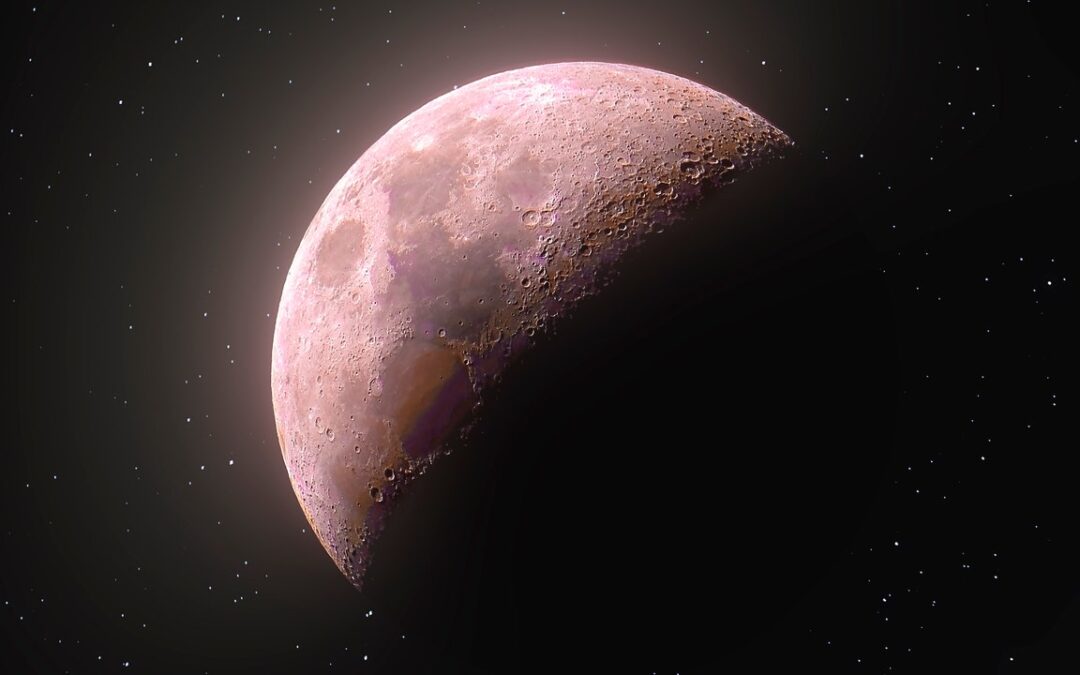Lunar eclipses, of course, differ from solar eclipses, which are often what people think of when they hear the word “eclipse,” when the moon passes between the Earth and the sun, causing the sun’s light to be blocked from our earthbound perspectives. These can be partial solar eclipses, when the moon only blocks a portion of the sun’s light; total solar eclipses, when the moon wholly blocks out the sun’s light from view; and annular solar eclipses, when the moon’s orbit is more distant to the Earth, causing the appearance of a ring of light around the moon.
A penumbral lunar eclipseGetty Images
How does a lunar eclipse affect you, astrologically speaking?
The period around an eclipse, whether it is solar or lunar, is considered potent by astrologers. This is true regardless of how visible it is, if it’s even visible to our position on Earth at all. These are times when great change can happen — swiftly and unexpectedly. These portals of consciousness can be life-changing, setting us on a completely different path than the one we’d been walking.
That said, eclipses are fairly common, occurring four to five times per year. What’s more, they will not always be personal to you — good news for those whose lives may have been thrown asunder amid the big sign-shifting transit of Pluto or the recent Mercury retrograde in Taurus and are finding themselves tired of change. There was a solar eclipse in this cycle on Thursday, April 20, 2023, at 12:13 a.m. (EST), positioned at 29 degrees of Aries. If you’ve had experiences related to asserting yourself or learning to be selfish (in a positive, put-your-mask-on-before-helping-others way), then this may have prompted an active eclipse time for you.
Solar eclipses, such as this last one in Aries, tend to come at new beginnings and new opportunities, as they are, in my eyes, supercharged new moons; lunar eclipses, on the other hand, can be seen as a more intense full moon, therefore making them more about endings, releasing, and letting go — or, in some cases, having things being “let go” for us. Whether this is a positive, negative, bittersweet, or even totally uneventful time for you, it is worth paying attention to how this moon impacts your circumstances, moods, and experiences.
What is the astrological significance of the lunar eclipse in Scorpio?
Scorpio is the sign of deep feeling. secrecy, privacy, and ambition, which means this penumbral lunar eclipse is going to be intense. Scorpio is the sign that in the Northern Hemisphere heralds the season when things begin to die, or at least prepare to do so, as it is historically after farmers have harvested crops in Virgo and celebrated the autumn equinox in Libra. What’s left in the field? Little, other than the rejects, and so everything withers, which is one reason Scorpio is also known as the sign of death, decay, and hardship. This does not have to be negative, of course: without death, there is no life — and no new beginnings.
A composite image of the phases of a lunar eclipseGetty Images
This is a thoughtful time, though you do not necessarily have to meditate, journal, manifest, or go into trance to “connect” with the eclipse. It is not as subtle as it seems — even to those who can’t physically observe it with their own eyes — and it will make itself known. If this is an important time for you, you will feel it, particularly if you have a planet at 12 to 16 degrees of a fixed sign (Taurus, Leo, Scorpio, Aquarius). Eclipses exert a powerful influence and usually manifest themselves as events in one’s life: an unmistakable physical event, a decision, a person saying goodbye forever. I am sorry to sound so morbid but I have personally been broken up with or lost people during an eclipse; they can be scary and sad, but they can also be beautiful and enlightening.
As always, be kind to yourself, practice self-care, and we’ll see you in the stars.

